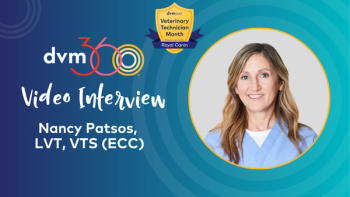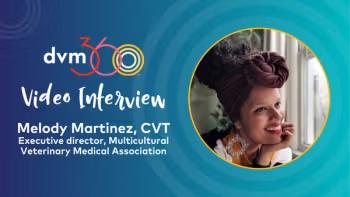
Super DVM saves the world
You're busy, you're stressed, it's easy to be wasteful. But make your veterinary hospital a beacon of environment kindness, not a black hole of disposable garbage.
Inspire the world with heroically eco-friendly practices in your veterinary hospital. (Illustration Getty Images)Too much laundry detergent? Too many white paper towels? Extra stuff thrown into medical waste? The negative environmental impact of careless waste in veterinary hospitals is alarming. But you're super. I just know it.
I know you're busy, but just look at the wake of waste you leave while rushing around. Not measuring the amount of detergent you use or the bleach you pour into a bucket or onto a floor-even failing to flip a power switch off-helps you and the rest of the less-careful people on this planet wallop the environment with toxic, ruinous waste.
Super DVM's Eco Code
> Follow the directions on your detergent. Extra detergent doesn't make things cleaner. It just dirties our waterways.
> Don't overuse bleach and disinfectants. Again, follow the directions. Those chemicals hurt sewage treatment.
> If it's not medical waste, don't throw it away there. That stuff gets burned-greenhouse gases!
> Cut back on paper towels.
> Turn out lights you're not using.
Don't be a detergent dope
If you're one of those people who pour laundry detergent into the washer like you're drowning a stack of Denny's pancakes in syrup, listen up. Firstly, more laundry detergent doesn't equal cleaner laundry. The added soap clings to dirt and prevents it from being washed away by the rinse water. Too much detergent can also tint your laundry blue and damage the machine.
But here's the real reason why using too much laundry detergent, is really bad. Unless your practice has an outhouse, it's likely you're hooked up to a public sewer that must treat millions of gallons of wastewater each day. Sewage treatment plants cultivate bacteria that eat up nitrogen, then discharge (get ready to grab your barf bag) what's left over into your area's streams and rivers. The composted solids (and I think you're imaginative enough to guess what they might be) are trotted off to your local landfill. Now there are guidelines for how much crap can be left over in the, well, the crap, but remember the operative words here are how much can be left over. Sewage treatment facilities are not wholly effective at removing all nitrogen and phosphorous from wastewater, and that's bad news for fish, waterfowl and everything that needs those streams to be pure.
But, wait, it gets worse ...
What's stronger than detergent and required for proper disinfection of a veterinary hospital? That's right. Bleach and other disinfectants.
You're using them to kill bacteria. Well, guess what? When you dump too much into your mop bucket, that full-strength bactericide sails on down to the sewage treatment plant where it knocks off all the bacteria working to remove the laundry detergent you previously flushed down the drain. You didn't just waste money by needlessly using an entire bottle of bleach-you helped ruin the work of your sewage treatment plant! Really! Call your sewage treatment plant and ask them if it's possible for one household or business to mess up a day's worth of sewage treatment. Go ahead! It may take a village, but it only takes one ding-dong in that village to screw up the waterways for everyone.
Is it all really medical waste?
Not everything you use needs to be thrown into medical waste. Instead of being dumped in a landfill (which is bad enough, right?), medical waste is burned and gases from the incineration process of medical waste are highly toxic. Additionally, greenhouse gases released from burning waste rival those produced by coal-burning facilities. If it doesn't have to go in the medical waste container, don't out it there.
The evil picker-upper
It may be the quicker picker-upper, but maybe you can use less when you're pickin' uppin'? The chemicals used to make paper towels white are very toxic. If your waste is burned, those chemicals waft up into our clean air. They're probably meeting up with the medical waste gases for a pollution party right overhead, ruining the air quality for everyone. If your eyes are tearing up, you're either sensitive to the environment or too close to an incineration plant.
Turn out the lights
Did you know Americans waste billions of dollars' worth of electricity annually? Just so you know, the lion's share of our electricity comes from burning fossil fuels, so when you look up at the ceiling, don't think of those things hanging down as light bulbs, think of them as little gas lanterns fuming away, sending needless pollution into our skies. When you walk out of a room and leave the light bulb "burning," you're leaving a little red-hot filament on fire with the greenhouse gasses from a vast energy supply chain.
My call to action!
OK. Can we agree to save 15 minutes at our next employee meeting to talk about the stuff we're wasting and how we can cut down? This isn't only about saving money. This is about assuming our rightful role as responsible healthcare providers for animals and stewards of the environment in which they live. Let's not be more walking zombies of consumption, but mindful members of our community and our planet.
Bash Halow, BA, CVPM, LVT, is a partner at Halow Tassava Consulting. Want to see Bash in person? We can't guarantee he'll be wearing a
Newsletter
From exam room tips to practice management insights, get trusted veterinary news delivered straight to your inbox—subscribe to dvm360.






